How to customize a green packaging?
The term “green packaging” refers to packaging that is more environmentally friendly than standard options companies may choose for their products.
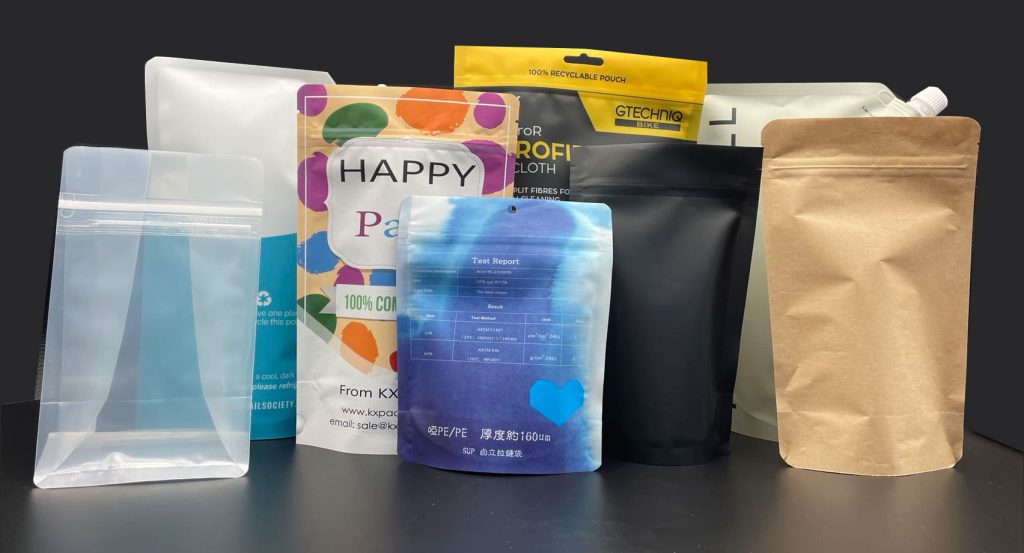
What are other names for green packaging included?
1.Recyclable packaging
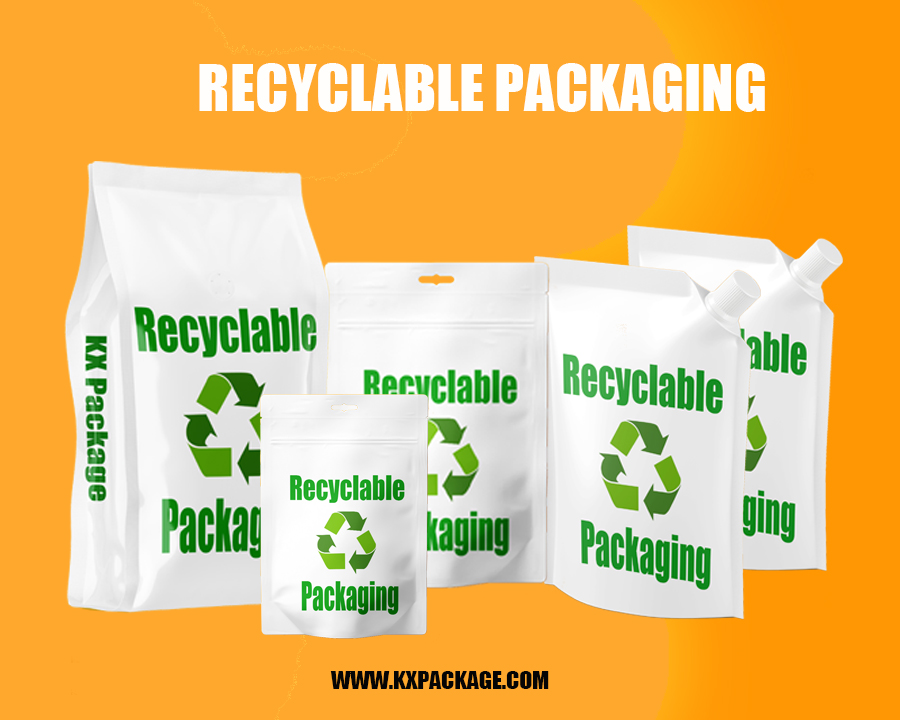
- Recyclable Packaging: This is made from materials that can be recycled at traditional facilities. Recyclable refers to what can be done with the packaging after it’s useful life is over.
- Post-Consumer Recycled Packaging: PCR refers to new packaging made from materials that have already been disposed of and recycled and turned into new packaging.
2.Eco-friendly packaging
- Biodegradable Packaging: Often made from plant based or bio-plastic materials, this packaging may have microorganisms that help break down the materials.
- Compostable Packaging: Packaging is made from natural plant materials that can return to the earth naturally and help the planet’s systems regrow.
What are materials of Eco-friendly green packaging?
- Recyclable Materials
Packaging made from recyclable materials can be tossed in a bin and recycled at standard facilities.
Some common recyclable packaging materials include:
Glass
Paper/Cardboard
Plastic
However, not all plastics may be recyclable. Some common recyclable plastics include:
High-Density Polyethylene (HDPE)
Low-Density Polyethylene (LDPE)
Polyethylene Terephthalate (PET)
Polypropylene (PP); Not accepted by all recyclable, but an increasing number are.
- Post-Consumer Recycled Materials: PCR
These materials are from other products or packaging that have been used and recycled into new packaging.
This helps keep materials in use rather than going straight to landfills. Often, this packaging can be recycled again and further kept in a circular life cycle rather than being disposed of.
Packaging that’s recyclable or made from post-consumer recycled materials are both great green packaging options for a variety of products — including:
Pasta and dried goods
Nuts and seeds
Powdered products
Candy, chips, and crackers
- Sustainable Packaging Materials
There are multiple kinds of compostable packaging, which may need to be disposed of differently depending on how they’re made and the materials they’re made from.
Polylactic Acid (PLA)
This material is mainly used as a base for plastic packaging. PLA plastic is made from suger cane, starch and corn.
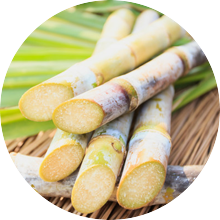
Suger Cane
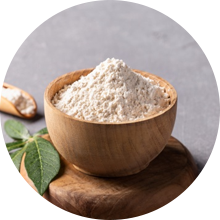
Starch

Corn
Decomposes naturally into biomass, carbon dioxide, and water without specialized composting facilities. Approved for high-barrier applications up to 100℃
Compost KP: Made with revoded PLA and kraft paper. Great for dry and semi-dry food options, provides barrier protection.
Compost NPT: Wash Coat, transparent cellulose, and moisture barrier & seal coating. Made with nature flex, which is compostable, heat sealable and transparent, great moisture barrier.
What are shapes of recyclable pouches we could make?
If there’s one trend that’s only getting bigger, it’s recyclable packaging that allows for packaging to have a second life. Because so many plastics don’t break down, the issue is always, where does this plastic go for basically eternity?
Long after humans are gone, that bag of Doritos will still linger, and those bags often wind up on the beach, hurting sea life. More and more companies are switching their packaging to a fully recyclable PE (polyethylene) mono-material structure, designed to be broken down easily and can be easily sorted in recycling facilities. This is one of the more exciting avenues in packaging because more companies and consumers want to lessen their carbon footprint by being mindful of their packaging.
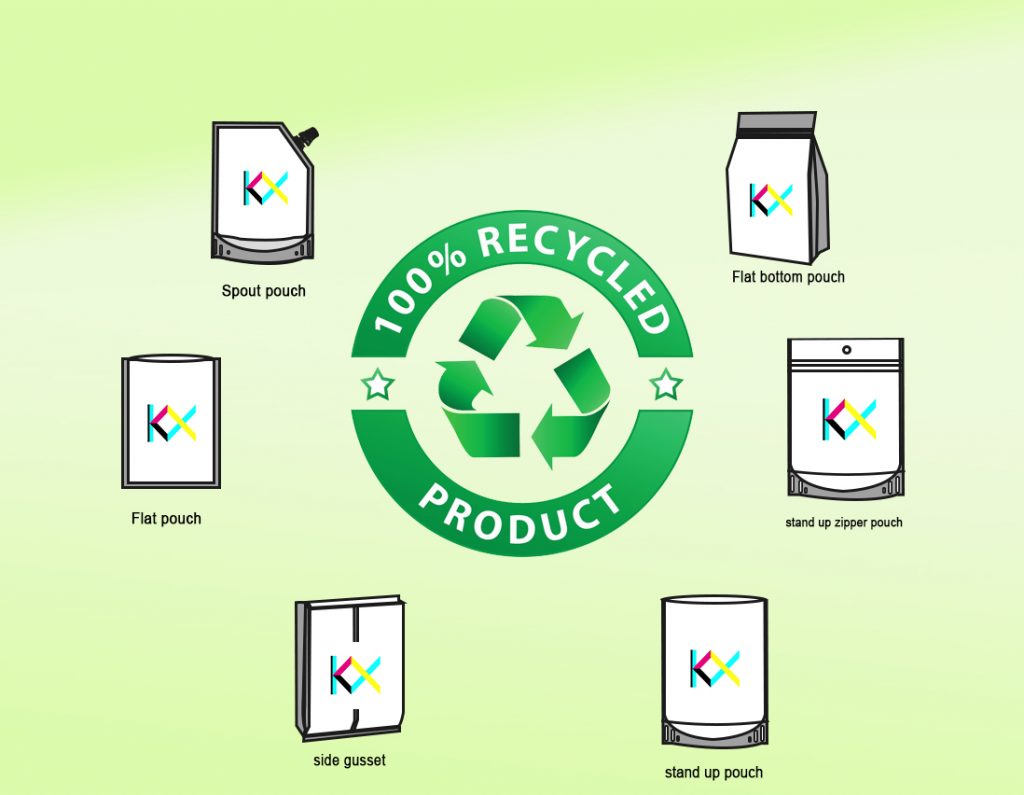
What are shapes of compostable pouch we can make?
For compostable pouch, we can make flat pouch, stand up (zipper) Pouch and flat bottom pouch. We could add PLA zipper and PLA valve if customer need.

Flat Pouch
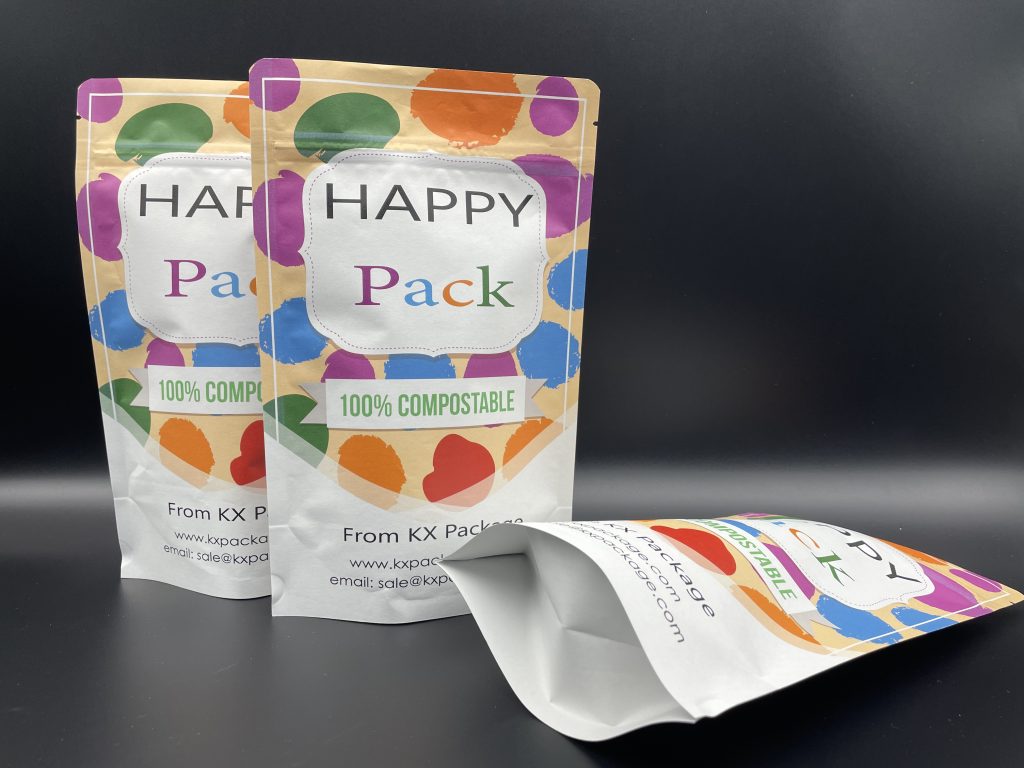
Stand Up Pouch
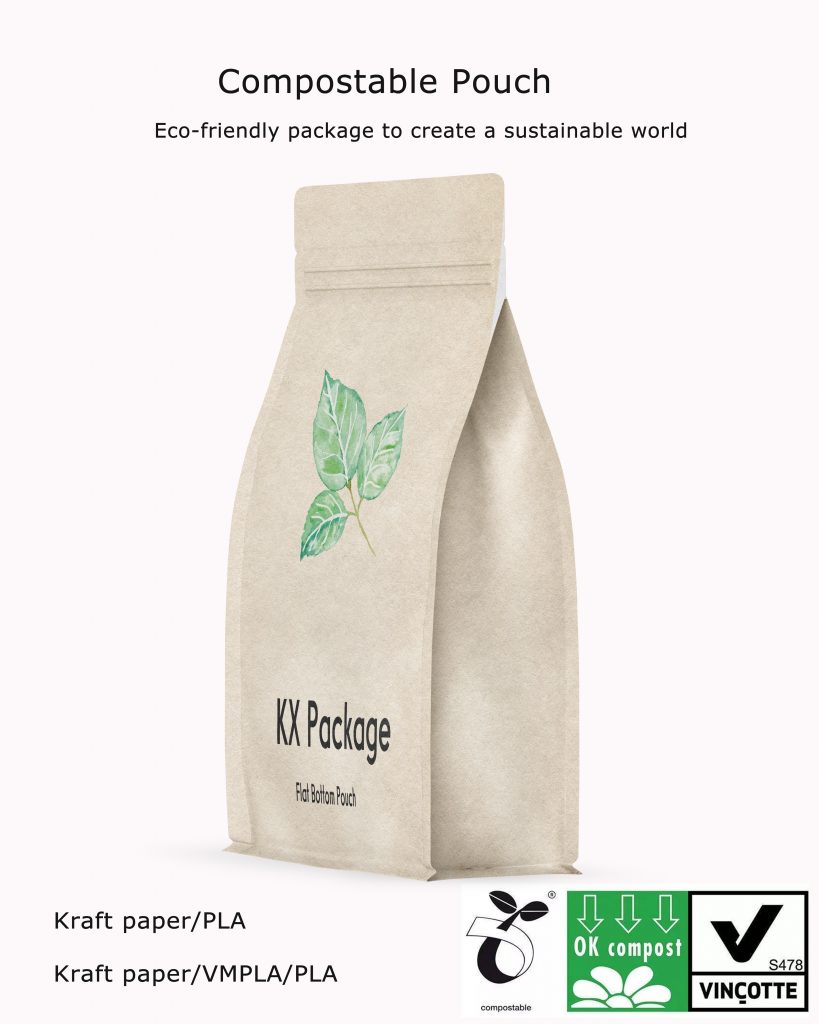
Flat Bottom Pouch
Green packaging is the trend for 2023, but everything moving forward shouldn’t be clogging up our landfills and waterways. It’s time to close the loop on waste – packaging should be reusable and solicited with the idea that customers recycle these products.
